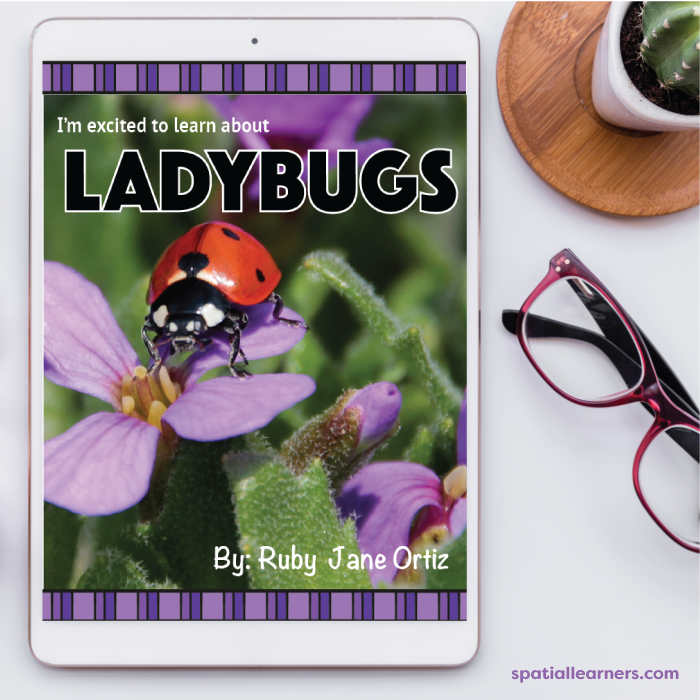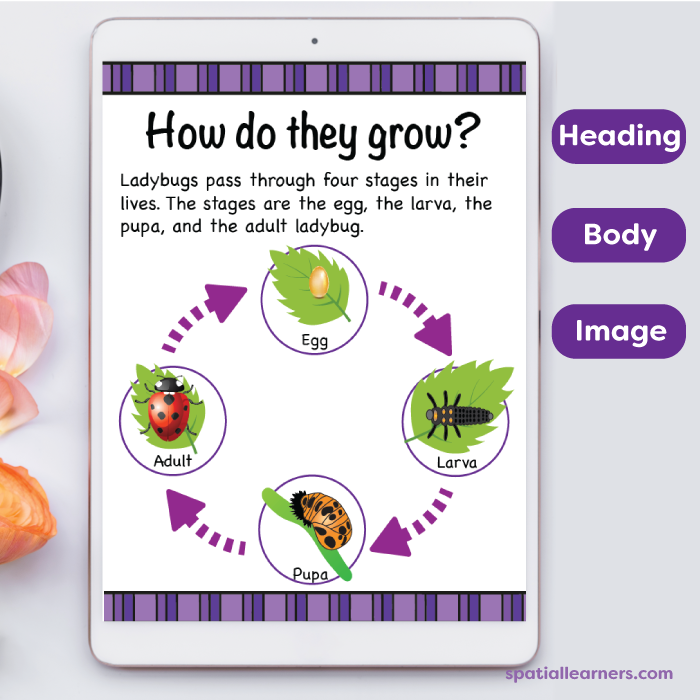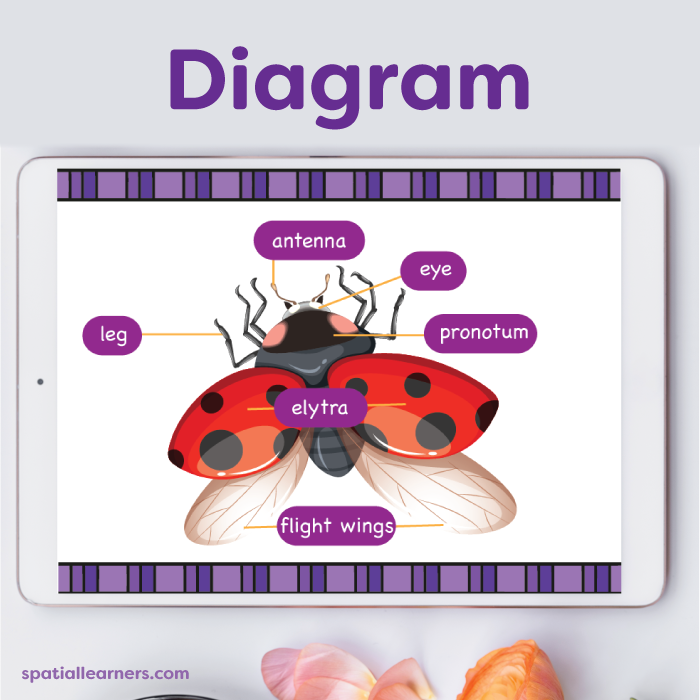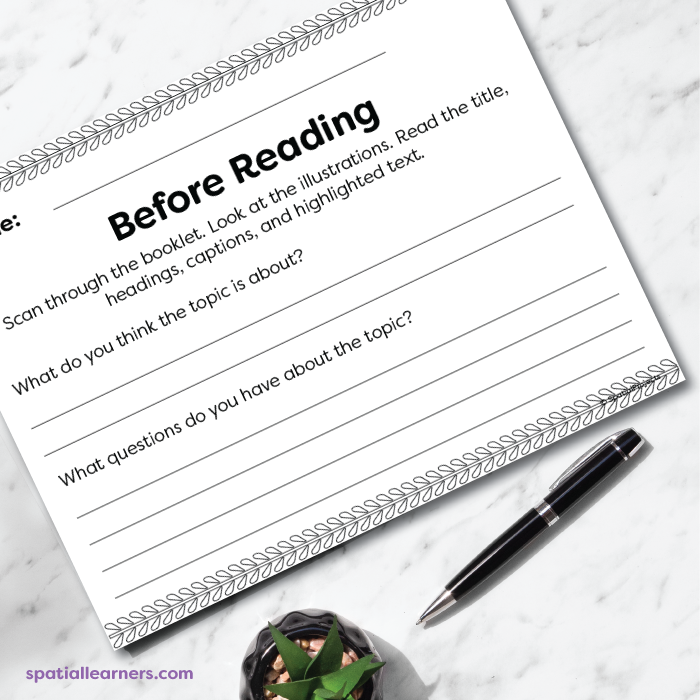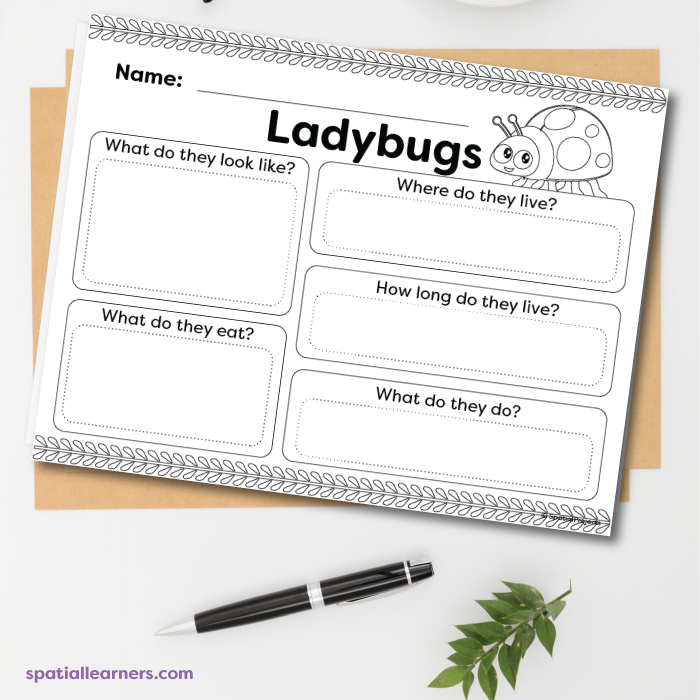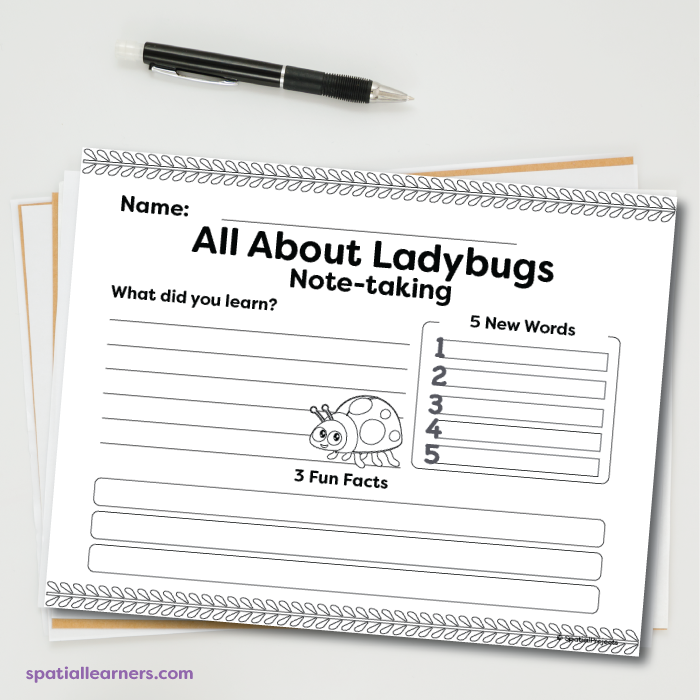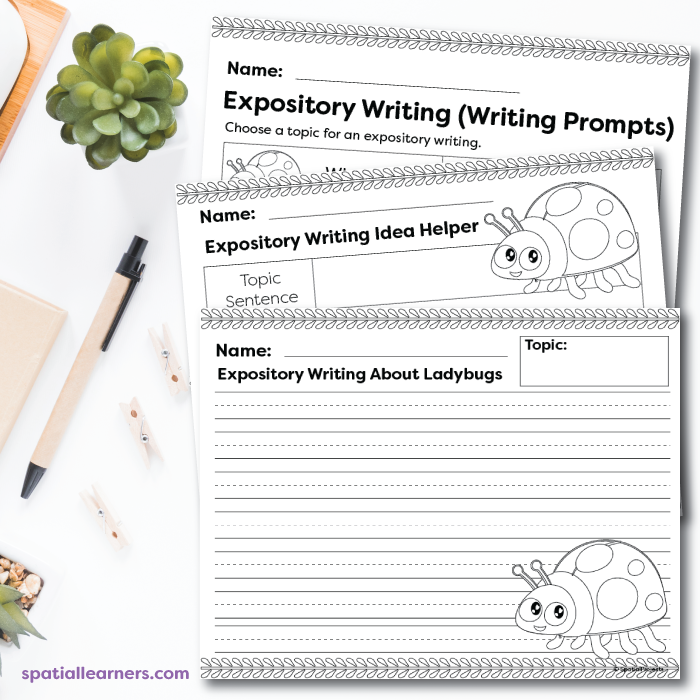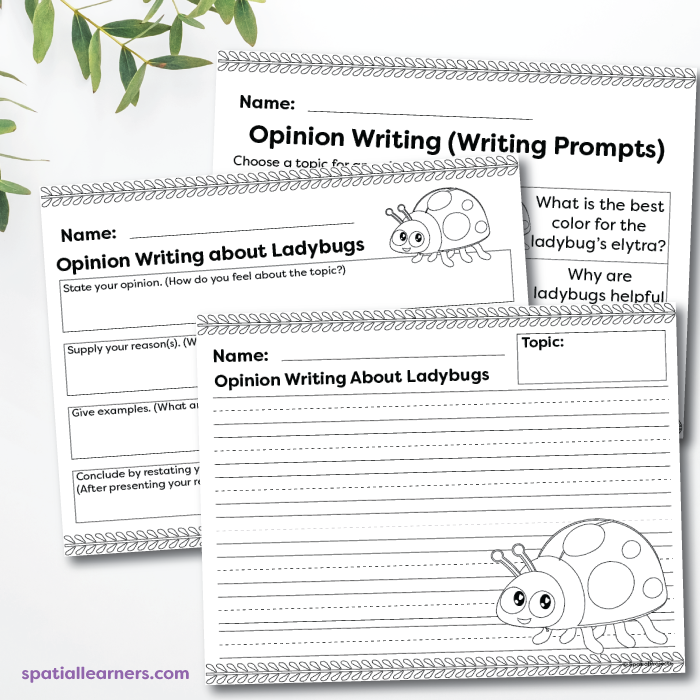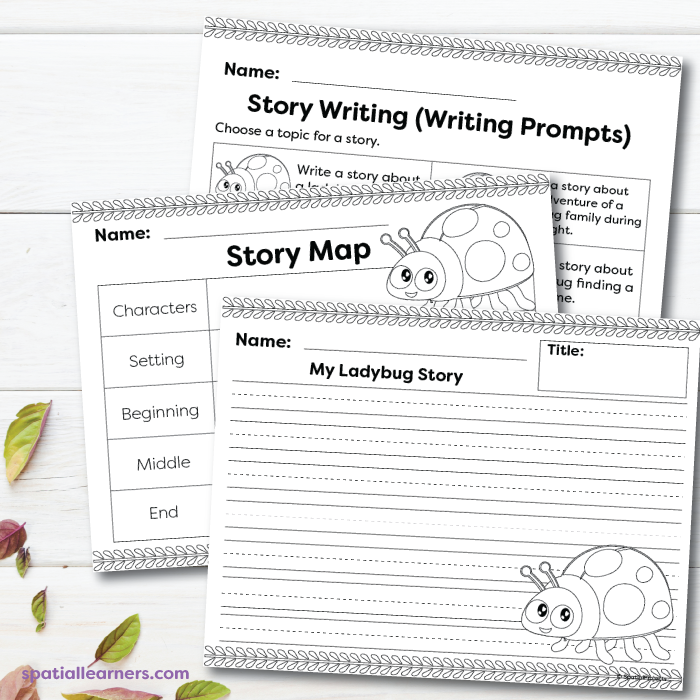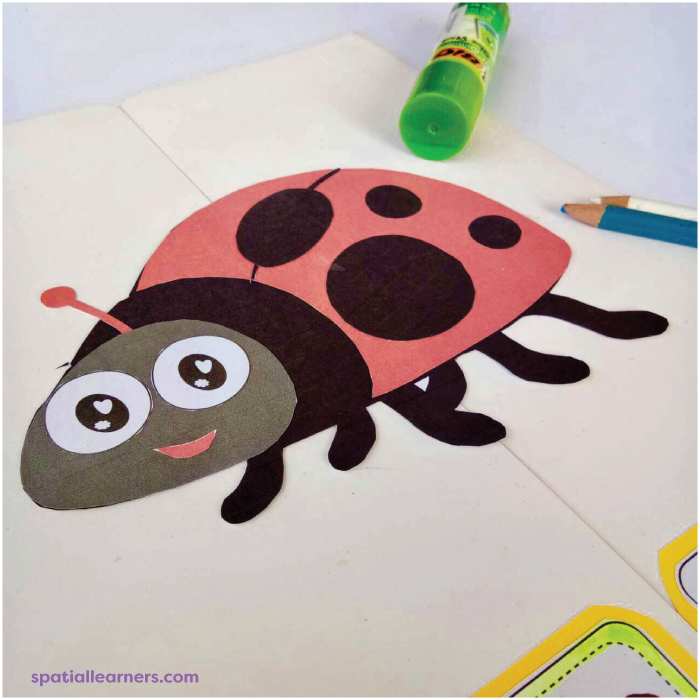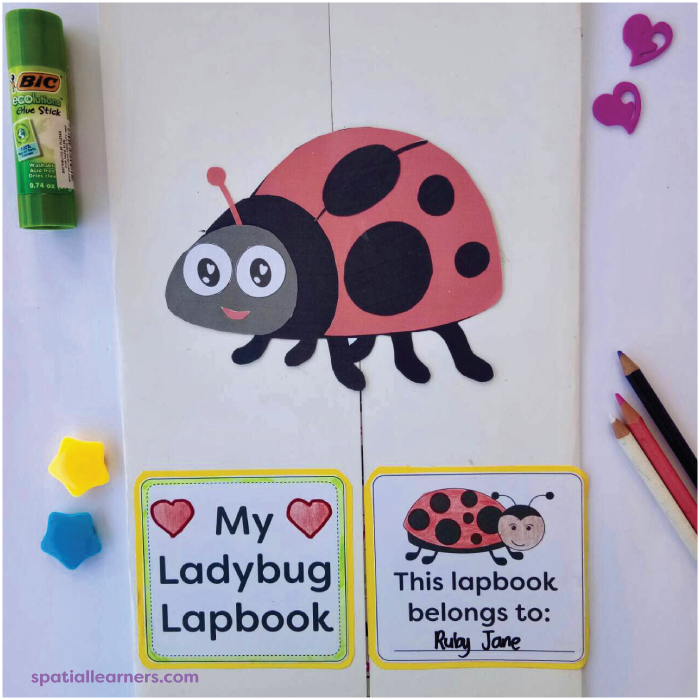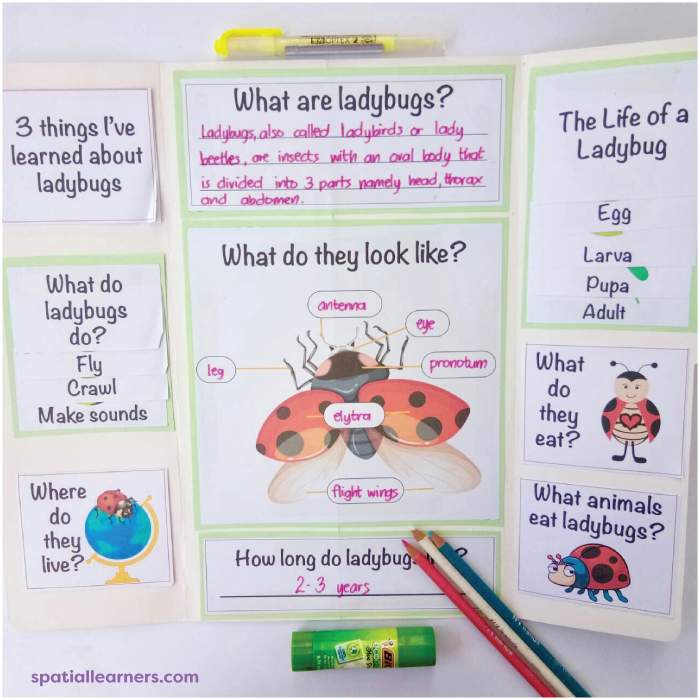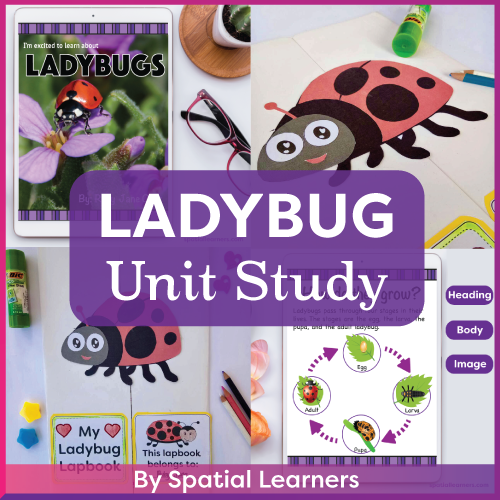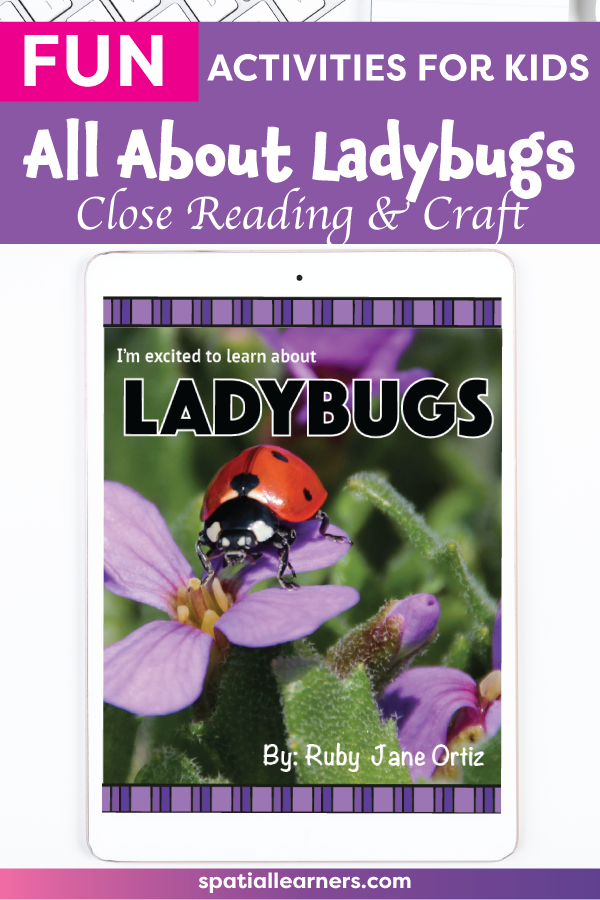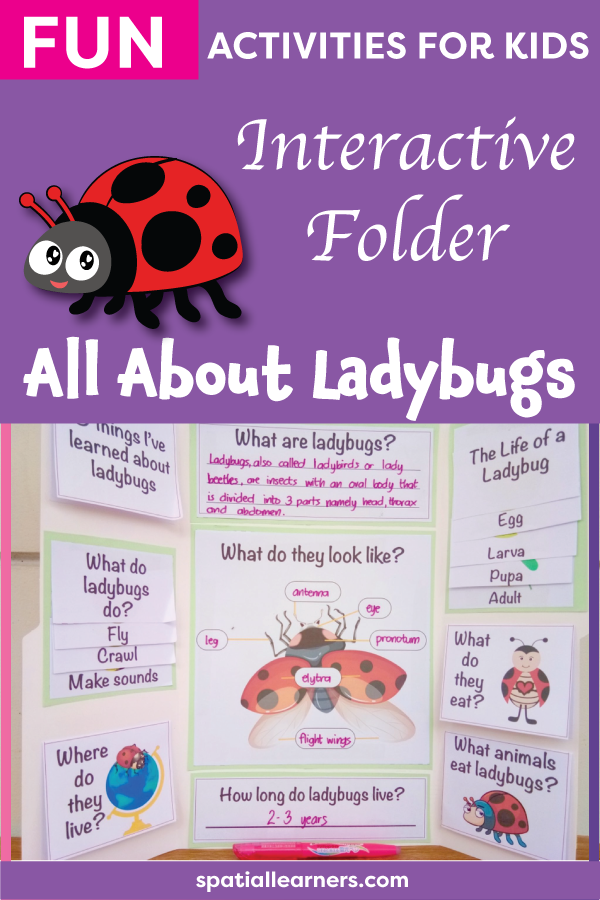|
I am a small flying insect with big eyes on my head My spotted wings can come in different colors orange, brown, or red |
LADYBUG UNIT STUDY
Yes, it’s time to learn about ladybugs! Ladybugs are amazing insects and your children will love learning about them. Here are some fun and engaging activities you can do with your children to get the thinking train started… and let us know where it goes.
Guided Reading
During a guided reading session, you can provide a text that your children can read with support, coaching them as they use problem-solving strategies to read the text. The goal is to help your children become proficient readers.
There are three main segments of a guided reading session.
(1) Before Reading
Set the purpose for reading. Show the children the cover of the book and ask them to scan through it and look at the illustrations. Let them make predictions by asking the following questions.
- What do you think the topic is about?
- What questions do you have about the topic?
- What is the author’s purpose in writing about this topic?
(2) During Reading
Guide your children as they read. Be a patient observer and give prompts only when needed. Remember that different children will need different strategies -- some may need support with comprehension, others may need decoding cues.
(3) After Reading
Strengthen comprehension skills by inviting your children to discuss the meaning of the text. Extend understanding through assessment and writing activities.
Matching Reading to Writing
Reading and writing cannot be separated. As Pam Allyn notes "Reading is like breathing in; writing is like breathing out, and storytelling is what links both: it is the soul of literacy”.
Expository Writing
Expository writing is used to present facts and inform a reader about a specific topic. Invite your children to write about ladybugs. They can explain a concept they have just learned, describe similarities and differences between two ladybugs, or explain a process, such as the ladybug's life cycle.
Opinion Writing
Opinion writing provides the writer’s views about a topic. In this form of writing, your children must clearly introduce the topic, state their opinion, provide reasons supported by facts and details, and provide a conclusion. Try giving them graphic organizers that will help organize their thoughts.
Story Writing
Creating and writing a story will help your children learn how to organize their thoughts and communicate their creative ideas. Your children will also have the chance improve creative writing skills. You can guide them by providing a story map and some writing prompts that they can work on.
Craft and Lapbook
One of the best ways to have fun in learning is through art activities! Let your children use the craft patterns to create a ladybug craft. They will then use the ladybug craft to build their lapbook, which can be their final project as they wrap up their ladybug unit study.
Craft and Lapbook
One of the best ways to have fun in learning is through art activities! Let your children use the craft patterns to create a ladybug craft. They will then use the ladybug craft to build their lapbook, which can be their final project as they wrap up their ladybug unit study.
LADYBUG UNIT STUDY
Get ALL the printable you need for this ladybug unit study here. This All About Ladybugs resource has everything you need for an interactive nonfiction unit in your classroom. It includes ladybug craft, nonfiction unit booklet, lap book, Ladybug life cycle worksheets, answer key, graphic organizers, and writing activities. This comprehensive packet includes 3 pdf files: nonfiction unit booklet, craft guide, and writing activities booklet. |
❤️ Did you enjoy this article? Save, pin, and share! Choose one from the following images.
Thank you so much for reading!
Lots of love,
Ruby Jane ❤️
Lots of love,
Ruby Jane ❤️
